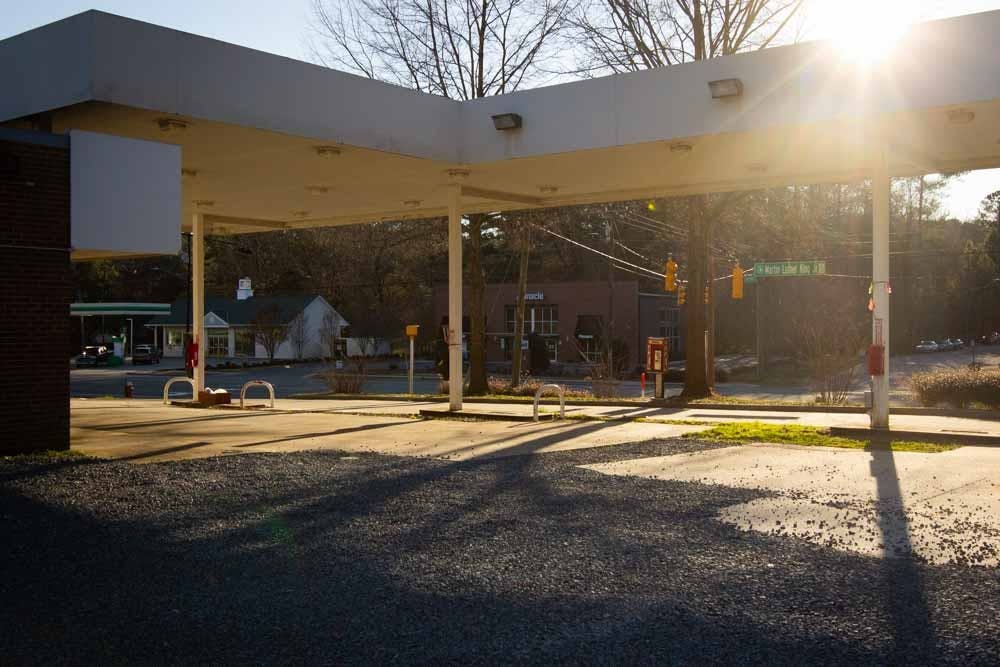Stackhouse Properties did not respond to multiple requests for comment by the Daily Tar Heel by the time of publication.
'Overall distaste' for the project
In December 2020, Monter received a letter from Stackhouse about the project and an upcoming community meeting. The letter stated if the rezoning proposal wasn’t approved, the park would be closed and the property redeveloped. In this case, residents would have until the end of August to remove their homes and search for another place to live.
“For us to be bombarded by these people, with their plan for having a storage unit and having people relocated, is just not appropriate,” Monter said.
Monter said though the residents are largely opposed to the project, they’ve accepted that the project has to happen because they aren’t willing to give up their homes, their access to the school district or the tight-knit community.
Eliazar Posada, the acting president and chief executive officer of El Centro Hispano, said the Tar Heel Mobile Home Park community reached out to the organization seeking support. He said workers from El Centro Hispano spoke with dozens of families and, despite an “overall distaste” for the project, the community asserted they wanted the council to approve the project.
“The owner is holding our community members and the families who are living in that mobile home park hostage so that he can get his buildings past the council,” Posada said.
Since Stackhouse bought the property and proposed the project in 2018, a lack of trust has existed between the owner and the community. Melissa Ginsberg, who moved to the park three years ago, said the property owner before Stackhouse was more involved in the community than other landlords she’d had experience with.
“Whatever issue we had, we’d go to him and he’d help us,” Monter said of the old landlord.
A musician who spent years on the road, Ginsberg wanted to settle into an affordable home with her daughter. The old landlord, who had known many families in the mobile home park for decades, convinced her it was a family-oriented community. After she moved in, the park came under the management of Stackhouse, who implemented rules and managed the property with a different approach than what many were accustomed to.
Ginsberg, who had to move to a different lot because of the project, said she doesn’t see a need for a storage unit, but hopes the project will lead to improvements in the community. Whether through safer roads in and around the park, better lighting and amenities such as a playground, she said the community can come together to have the landlord make those changes.
Though she said relocating in the park was difficult, the landlord offered those affected by the storage facility various options for moving lots, and she’s happy with how the process went. Ultimately, she said she trusts the landlord.
To get the day's news and headlines in your inbox each morning, sign up for our email newsletters.
“I want to believe that because of the covenant, the landlord is locked in to making the changes that they’re committed to,” she said.
Protecting mobile home park communities
If the council approves the project Wednesday, the covenant provides that the property will remain a mobile home park until 2036. But the council is aware the Town needs to take steps to protect other low-income and vulnerable communities from similar situations.
“We need to go about the work of developing a proactive actual strategy so that if this does happen again, we’re prepared with good housing options for folks that enable them to stay in town and to continue to be a part of the fabric of our community,” Buansi said.
Gu remains adamant about voting against the project, saying the council can take short- and long-term reactions to protect the residents, such as extending an eviction moratorium until the Town could downzone the park into a district meant specifically for manufactured housing. Downzoning is a sort of zoning change that reduces the intensity of a property’s land use.
“We need to carve out a place for those people who have very limited resources to be able to live here,” she said. “I think that is a tool that’s completely within our regulatory authority.”
Buansi said the council hasn’t discussed such zoning, but that it wouldn’t be a permanent protection for residents in mobile home parks. In a Facebook post, council member Karen Stegman said due to Dillon’s rule — the granting of power to municipalities by the state — the Town wouldn’t be able to extend the statewide eviction moratorium.
At the request of residents the organization spoke with, El Centro Hispano will recommend the Town approves Stackhouse’s proposal, but Posada insisted much work remains to be done.
Posada said the Town and Orange County haven’t done enough to protect mobile home parks. Moving forward, he said the municipalities need to work on identifying tools to ensure mobile home park residents aren’t used as “pawns” by developers seeking approval on their projects.
“The recommendation comes along with an expectation that the Town will really sit down and prioritize low-income communities and folks living in mobile home parks across the city,” he said, “because it’s the first — nor will it be the last — time that our communities in mobile home parks are left at the short end of the stick.”
@HenryHaney17
@DTHCityState | city@dailytarheel.com




